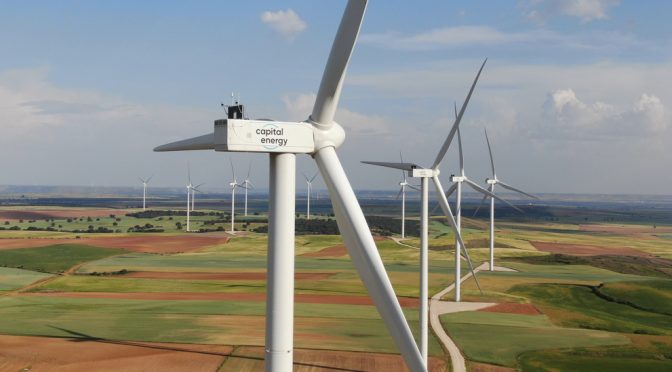Capital Energy would assume this supply commitment to Alcoa’s aluminum plant in San Cibrao, during an initial period of 10 years, thanks to the commissioning of 11 wind farms that add an installed capacity of 573 megawatts (MW), they already have of the network access permit granted and have been admitted for processing
The renewables company, present in Galicia since 2009, promotes 39 regional processing wind projects in this community, which add up to a combined capacity of more than 1,000 MW and whose start-up will entail a global investment of around 1,200 million euros, as well such as the creation of some 4,500 jobs
Capital Energy, a Spanish energy company born two decades ago and whose vocation is to become the first 100% vertically integrated renewable operator in the Iberian Peninsula, has just taken a new step to strengthen its commitment to the socioeconomic development of Galicia.
The renewable energy company, which has been developing wind infrastructures in Galicia since 2009, has signed a pre-agreement with Alcoa for the supply of 100% clean energy, starting in 2024, to the aluminum plant that this company has in the municipality Lucense de San Cibrao.
Under the terms of the pre-agreement signed between Capital Energy and Alcoa, the energy company would commit to Alcoa to supply annually, at a previously established stable rate and for an initial period of 10 years, of 876,000 megawatt hours (MWh) per year, equivalent to a base load power of 100 MW, a quarter of the electricity consumption associated with aluminum production in San Cibrao.
Capital Energy would assume this commitment thanks to the entry into operation of a total of 11 wind power facilities that it is currently developing in Galicia and that add up to an installed capacity of 573 MW. All these projects, which already have the grid access permit granted, have been admitted for processing, and five of them, representing more than half of said power (295 MW), have already been released to public information.
For Juan José Sánchez, CEO of Capital Energy, “through this principle of agreement for the supply of renewable energy to a client as relevant to the Galician industrial fabric as Alcoa, we ratify our commitment not only to the energy transition but also to the environmental and socio-economic well-being of Galicia, a community to which we feel closely linked and in which we have already invested, only in activities related to the processing of our parks, 14.9 million euros ”.
A renewable and social project committed to Galicia
Capital Energy has an office in the San Lázaro neighborhood of Santiago de Compostela where 13 employees work – all of them neighbors of the municipalities where the company promotes its facilities – and which has the capacity to triple the workforce as the project progresses. processing of the renewable projects that it is developing. This team has recently been joined by interns from the University of Santiago (USC), who complement their academic training in the company after the agreement signed with the aforementioned academic institution.
The company processes around 39 wind farms in this autonomous community regionally, distributed in the four provinces and with a combined power of over 1,000 MW. Its development would imply a global investment of around 1,200 million euros and would allow Capital Energy to generate a significant tractor effect. And is that the construction of all this renewable capacity would mean the creation of almost 4,500 jobs in rural areas, a contribution to GDP of close to 350 million euros and a fiscal impact of more than 30 million euros.
In the operation and maintenance phase, the company would provide permanent and quality employment to some 170 Galician professionals. Its facilities would contribute to the GDP more than 12.5 million euros per year and would generate an annual fiscal impact on local coffers of more than 3.7 million euros.
Capital Energy wants to accompany the development of all these renewable energy projects in Galicia with the launch of social and environmental action programs adapted to local needs, to maximize its contribution to the socioeconomic progress of all the territories in which it operates.


